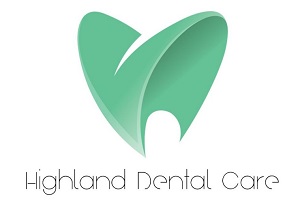Highland Dental Care, is equipped with the best dentist in Denver, CO and modern technologies. Call us at (303) 455-3838 to schedule an appointment at our dental practice.
What to Do If You Have a Tooth That Can’t Be Saved
When it comes to our dental health, saving a tooth can feel like an uphill battle. Whether it's due to decay, injury, or gum disease, sometimes our best efforts just aren’t enough. It's a tough situation that many of us face at some point in life. But what happens when extraction becomes the only option? Understanding your choices can make all the difference.
In this blog post, we will explore the importance of preserving your natural teeth and what you should do if you're faced with losing one. From recognizing when a tooth is beyond saving to exploring alternatives for replacement, we've got you covered. If you've been searching for insights on extractions in Denver, CO, read on! Your journey toward maintaining brilliant oral health starts here.
The Importance of Saving a Tooth
Saving a tooth is essential for more reasons than just aesthetics. Our teeth play a crucial role in how we chew, speak, and maintain our facial structure. Losing even one can lead to misalignment and discomfort.
Beyond functionality, preserving natural teeth contributes significantly to overall oral health. Each tooth supports the surrounding bone structure, helping prevent issues like jawbone deterioration. When a tooth is lost, that area of the jaw may weaken over time.
Additionally, keeping your natural teeth reduces the need for complex dental procedures down the line. Restoration work can be costly and time-consuming; saving a tooth often means fewer visits to the dentist.
There’s something inherently satisfying about maintaining your own set of chompers. Your smile tells your story—why not keep it as bright and complete as possible?
Understanding When a Tooth Can't be Saved
Not every tooth can be saved, and it’s essential to recognize the signs that indicate a tooth is beyond repair. Severe decay or extensive damage often leads to this unfortunate conclusion. If a cavity has penetrated deep into the pulp, saving the tooth becomes increasingly difficult.
Gum disease presents another challenge. When periodontal issues progress, they can cause teeth to loosen significantly. In such cases, extraction may be necessary for overall oral health.
Repeated infections are also red flags. A tooth that keeps getting infected despite treatment might not respond well in the long run.
Trauma from an injury can render a tooth irreparable. Cracks or breaks that reach below the gum line usually mean it's time to say goodbye to your natural smile component. Awareness of these factors helps you make informed decisions about your dental care journey.
Options for Replacing a Lost Tooth
Losing a tooth can feel overwhelming. However, several options exist for a replacement that can restore your smile and functionality.
- Bridges are one common choice. They involve anchoring artificial teeth to adjacent healthy ones. This option is effective but may require altering nearby teeth.
- Dentures are another alternative, especially if multiple teeth are missing. These removable appliances provide a full or partial solution, allowing you to chew and speak more comfortably.
- Then there’s the standout option: dental implants. Unlike dentures or bridges, implants mimic natural roots by being surgically embedded into the jawbone.
Each method has its pros and cons depending on individual circumstances. Consulting with a dentist will help determine which route suits you best based on health needs and lifestyle preferences. Contact us to learn more.
Dental Implants: the Best Option for Permanent Tooth Replacement
Dental implants stand out as a premier choice for those seeking permanent tooth replacement.
- Unlike dentures or bridges, they mimic the natural tooth structure by anchoring directly into the jawbone.
- This integration provides unparalleled stability and function. You can eat your favorite foods without worry or discomfort.
- Another advantage is their longevity. With proper care, dental implants can last a lifetime, making them an excellent investment in oral health.
- The aesthetic appeal is also noteworthy. Implants are designed to blend seamlessly with existing teeth, giving you a natural look that boosts confidence.
- Moreover, they help maintain bone density in the jaw. This prevents further complications down the line associated with missing teeth.
For anyone considering extractions in Denver, CO, discussing dental implants with your dentist could open new doors for restoring your smile effectively and beautifully.
The Process and Cost of Getting Dental Implants
Getting dental implants involves a multi-step process. Initially, your dentist will conduct a thorough examination to determine if you’re a suitable candidate. This usually includes X-rays and possibly 3D imaging of your jaw.
The first phase is the surgical placement of the implant itself, which serves as the artificial root for your new tooth. After this, there’s typically a healing period that lasts several months to allow the bone to integrate with the implant.
Once healed, an abutment is attached, providing support for the crown that will be placed on top. The cost can vary significantly based on factors like location and complexity but generally ranges from $3,000 to $4,500 per implant in Denver, CO.
Keep in mind that additional procedures may also affect pricing — such as bone grafting or sinus lifts if necessary. It’s best to consult with your dentist for personalized estimates tailored to your situation.
Other Alternatives to Consider
If dental implants aren’t the right fit for you, there are other options to explore.
- Bridges can provide a reliable solution by filling the gap left by a missing tooth. They involve anchoring artificial teeth to adjacent healthy ones, offering stability and functionality.
- Partial dentures present another alternative, especially if multiple teeth need replacing. These removable appliances are tailored to your mouth and can be adjusted as needed.
- Another option is resin-bonded bridges. These require less alteration of surrounding teeth compared to traditional bridges, making them a gentler choice.
- If aesthetics is a primary concern, consider flexible partial dentures made from lightweight materials. They are comfortable and blend seamlessly with natural gums.
Discuss these alternatives with your dentist in Denver, CO. Each option comes with its pros and cons based on individual circumstances such as oral health and budget considerations.
Conclusion
When faced with a tooth that can’t be saved, it's essential to explore your options thoroughly. The emotional and physical implications of losing a tooth are significant. You may feel self-conscious or experience difficulties in eating.
Understanding the importance of saving teeth can't be overstated. They play vital roles in our daily lives, from aiding digestion to maintaining facial structure. However, sometimes dental extractions become necessary due to decay or damage beyond repair.
If you're dealing with this situation in Denver, CO, it’s crucial to consult with your dentist about the best course of action for replacements after an extraction. Dental implants stand out as the premier option for permanent solutions; they closely mimic natural teeth and offer durability.
The journey toward acquiring dental implants is structured yet straightforward but does involve certain costs you should consider. It’s wise to discuss all financial aspects upfront so you can make informed decisions regarding your oral health.
While dental implants might be ideal for many, alternatives like bridges or dentures exist too. These options vary based on individual preferences and circumstances but can also restore functionality and aesthetics effectively.
Navigating through this challenging time requires support from professionals who understand your needs deeply. Seeking expert advice will ensure that whatever decision you make will enhance both your smile and confidence moving forward.







0 comments